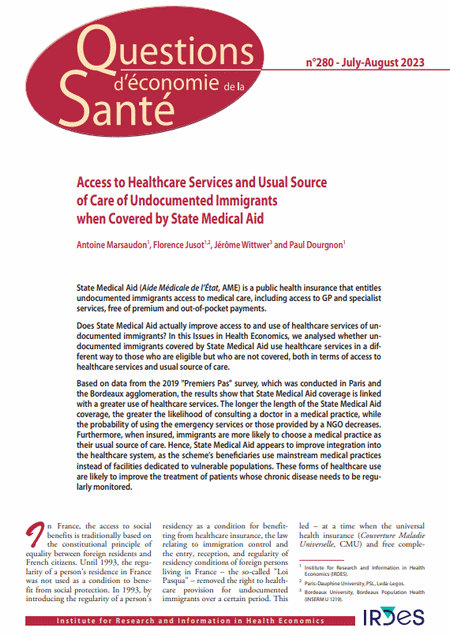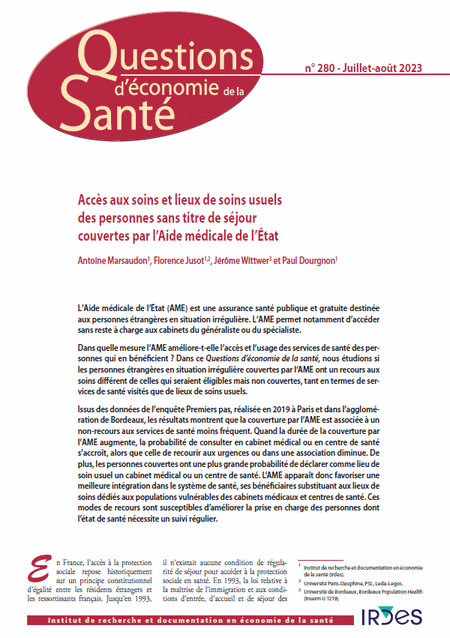Access to Healthcare Services and Usual Source of Care of Undocumented Immigrants when Covered by State Medical Aid
Marsaudon A., Jusot F., Wittwer J. and Dourgnon P.
Questions d'économie de la santé (Issues in Health Economics) n° 280 - July-August 2023
ABSTRACT
State Medical Aid (Aide Médicale de l'État, AME) is a public health insurance that entitles undocumented immigrants access to medical care, including access to GP and specialist services, free of premium and out-of-pocket payments.
Does State Medical Aid actually improve access to and use of healthcare services of undocumented immigrants? In this Issues in Health Economics, we analysed whether undocumented immigrants covered by State Medical Aid use healthcare services in a different way to those who are eligible but who are not covered, both in terms of access to healthcare services and usual source of care.
Based on data from the 2019 "Premiers Pas" survey, which was conducted in Paris and the Bordeaux agglomeration, the results show that State Medical Aid coverage is linked with a greater use of healthcare services. The longer the length of the State Medical Aid coverage, the greater the likelihood of consulting a doctor in a medical practice, while the probability of using the emergency services or those provided by a NGO decreases. Furthermore, when insured, immigrants are more likely to choose a medical practice as their usual source of care. Hence, State Medical Aid appears to improve integration into the healthcare system, as the scheme's beneficiaries use mainstream medical practices instead of facilities dedicated to vulnerable populations. These forms of healthcare use are likely to improve the treatment of patients whose chronic disease needs to be regularly monitored.
See also Questions d'économie de la santé n° 280 in French: Accès aux soins et lieux de soins usuels des personnes sans titre de séjour couvertes par l'Aide médicale de l'État.

